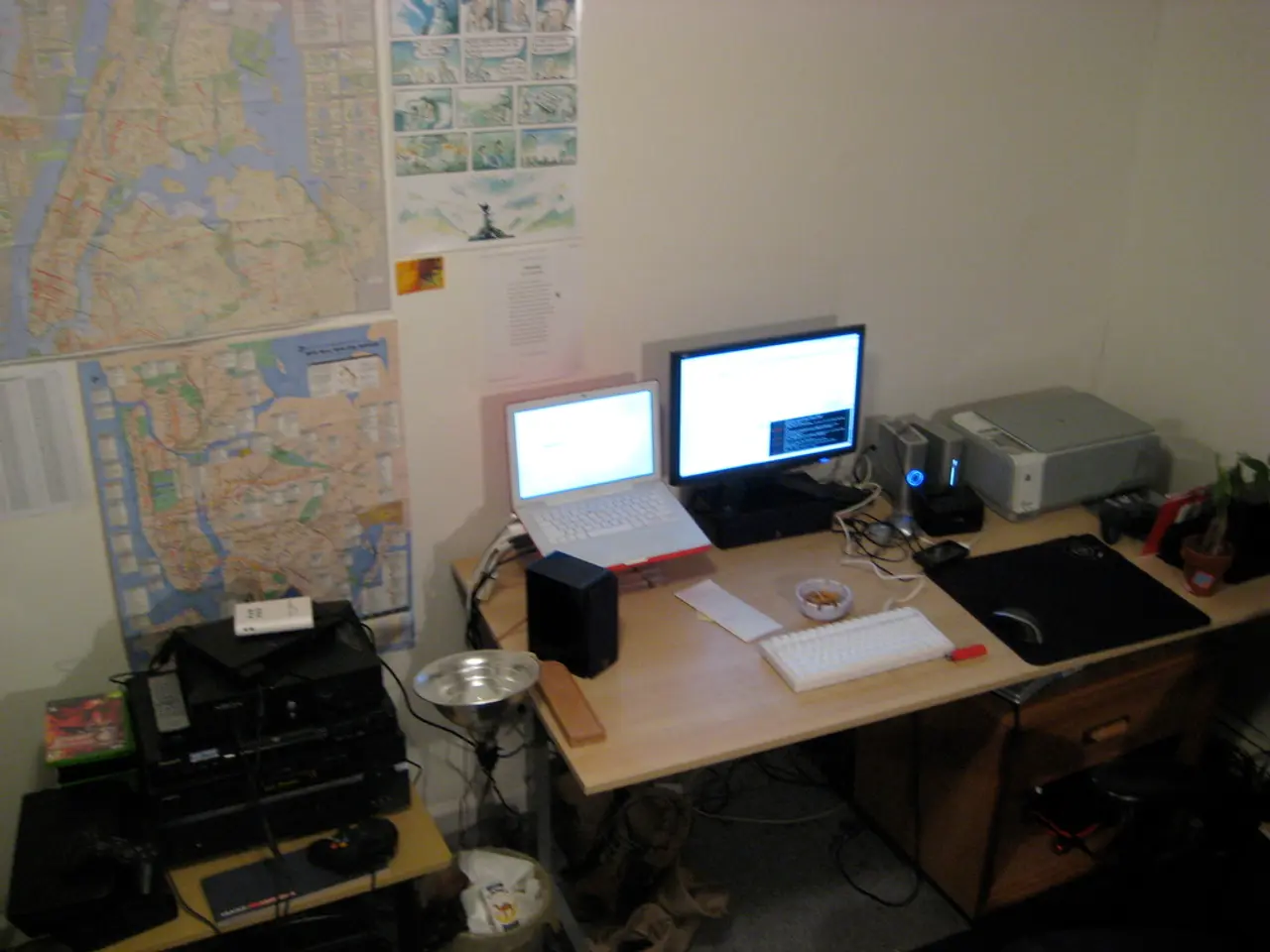Samsung supports 'connected healthcare' to repair disparate healthcare systems
Samsung Electronics is embarking on an ambitious journey to expand its presence in the digital and connected healthcare sector. Leveraging its strong position in consumer electronics, particularly wearable technology and smart home devices, the tech giant aims to revolutionise healthcare delivery.
A key part of this strategy involves the recent acquisition of Xealth, a U.S.-based digital health platform that connects over 500 hospitals with patients and integrates a vast array of digital health tools. This acquisition is intended to help Samsung achieve its connected care ambitions and provide a holistic approach to preventive care to a wider audience.
Samsung's vision is to transform itself into a connected care platform, bridging wellness and medical care by integrating clinical workflows with data from wearables and home devices. This approach emphasises a seamless, holistic approach to preventive care that connects health information usually siloed between consumer wellness devices and clinical records.
The long-term ambition over the next 10-20 years is to play a significant role in home health, helping especially aging populations live healthily at home. By leveraging its devices like smartwatches, TVs, refrigerators, and mobile devices—which are already present in a significant number of U.S. homes—Samsung wants to bridge the consumer electronics ecosystem with healthcare delivery.
Combining Xealth’s digital health platform and Samsung’s wearable sensor technologies will create a bridge linking home health monitoring and clinical decision-making, with a provider-patient relationship at the core. This also enables real-time, personalised health insights to empower individuals to take control of their health.
Samsung is investing heavily in AI, particularly ambient AI—which combines machine learning, data analytics, natural language processing, and humanlike behaviours. They envision AI enhancing healthcare by offering personalised patient care, operational efficiencies for providers, and improved data extraction from diverse health sources.
Samsung sees smartphones as central to delivering ambient AI experiences in healthcare and beyond, enhancing the user experience across its Galaxy device ecosystem, which it plans to grow to 400 million devices in 2025. The company is committed to balancing AI-powered healthcare innovation with protecting user data privacy, ensuring performance and personalisation go hand-in-hand as co-equal priorities.
Industry executives believe that scaling connected care is a crucial step in the future of healthcare, potentially fixing broken systems. Samsung's strategy rests on leveraging its expansive device ecosystem, enhanced by AI and bolstered by Xealth’s healthcare platform, to offer integrated, data-driven connected care solutions that span from clinical environments to the home. This multi-decade vision positions Samsung not just as an electronics giant, but a leader in digital health innovation combining consumer tech, AI, and healthcare seamlessly.
- Samsung Electronics has acquired Xealth, a U.S.-based digital health platform, as part of an ambitious plan to expand in digital and connected healthcare.
- Samsung aims to revolutionize healthcare delivery using its strong position in consumer electronics, particularly wearable technology and smart home devices.
- The company's vision includes transforming into a connected care platform, bridging wellness and medical care by integrating clinical workflows with data from wearables and home devices.
- Samsung's long-term ambition is to play a significant role in home health, helping aging populations live healthily at home, leveraging its devices like smartwatches, TVs, refrigerators, and mobile devices.
- Combining Xealth’s digital health platform and Samsung’s wearable sensor technologies will create a bridge linking home health monitoring and clinical decision-making, with a provider-patient relationship at the core.
- Samsung is investing heavily in AI, particularly ambient AI, to enhance healthcare by offering personalized patient care, operational efficiencies for providers, and improved data extraction from diverse health sources.
- The company's strategy posits Samsung as not just an electronics giant, but a leader in digital health innovation, combining consumer tech, AI, and healthcare seamlessly, with a goal to offer integrated, data-driven connected care solutions that span from clinical environments to the home.




